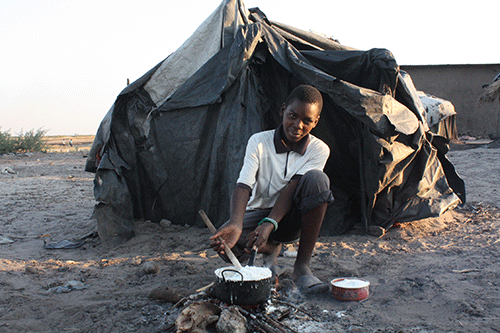A parliamentary standing committee on education matters has noted with grave concern the mushrooming of community hostels, which in some instances, are believed to be established for financial gains.
For instance, the committee discovered there is a total of 63 community hostels in the Kunene region, most of which are in close proximity to each other. This trend was also observed in Kavango West and East regions.
In terms of the policy on community hostels, the education ministry is to pay subsidies to registered community hostels to sustain their operations.
Currently, the ministry pays a subsidy of N$22 per hostel learner for the number of hostel days, which is normally paid as a lump sum at the beginning of each term.
The subsidy is supposed to be paid per the maximum capacity of a hostel, however, at some hostels, the subsidy is instead paid per the total number of hostel learners even in cases where the number exceeds the hostel capacity.
In a report tabled in the National Council last week, the committee discovered that some schools collect hostel fees but did not seem to be aware of the procedures for handling public funds. “They did not open a bank account to that effect, hence, the hostel fees collected were being kept at schools and not all books were externally audited. It emerged that the ministry was not aware that certain schools were collecting hostel contributions as some of these hostels were not even registered,” the committee gathered.
In the past, the education ministry has threatened to discontinue funding community hostels that misappropriate State funds for unintended purposes and fail to produce audited financial reports.
According to the 2004 ministerial policy, the aim of establishing community hostels is primarily to ensure that children in rural areas have access to effective education by satisfying their physical, psychological, and spiritual needs.
The objective is to provide accommodation to mainly children of marginalised communities or families, farmworkers and other children who cannot easily access education because of long distances and poor home conditions.
The need for the hostel is identified by the concerned community, in collaboration with the school board and principal. This is followed by wide consultations by regional councillors, traditional leaders, and the regional councils to determine the viability of such a project.
A request is then channeled to the regional director of education for a recommendation.
The parliamentarians established that the need for these hostels is largely motivated by the outcry of parents due to the plight of learners who walk long distances to schools.
It emerged that some learners walk five to 20km or more daily.
Further, the committee learned that the community hostels are usually established with the assistance mainly of donors, volunteers, community leaders, regional councils, constituency councillors and the regional education directorates in the respective regions.
It was further revealed that the hostels mostly began with learners having to be accommodated in shacks, tents, or even classrooms.
King Kauluma Combined School in Oshikoto and Okaukuejo Combined School in Oshana regions, for instance, are former military bases that were donated to the school and had no hostels.
Despite some communities establishing community hostels according to the criteria stipulated in the 2004 policy, it emerged during the committee’s engagement that some were established without the knowledge of the regional directorate.
Moreover, the committee also found that community hostels built on private properties were in limbo regarding ownership.
At Groendraai and JW Mouton Primary (on farm Karanas) both in the Hardap region as well as Aris Grundschule Primary School in the Khomas region, it was found that the upgrading of the hostel infrastructure and administration of government subsidy was a challenge as the land owners and school management had failed to reach common grounds. The situation was found to be volatile at Groendraai Primary School where there is a hostile relationship between the school and the land owner.
The committee visited 52 hostels at selected schools in the 14 regions with not less than three hostels per region.
Additionally, the committee engaged hostel management at each school visited in order to collect information pertaining to the establishment and management of the hostels, as well as the general condition. –anakale@nepc.com.na


